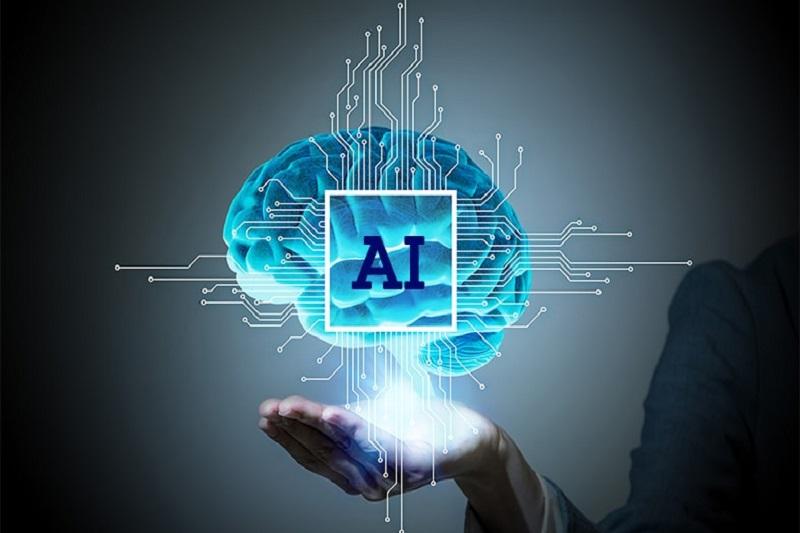A Roadmap That Turns You Into An Artificial Intelligence Engineer – The Main Tasks Of An Artificial Intelligence Engineer
Investing In AI-Related Skills, Will Give You Many Career Opportunities In A Variety Of Industries. Especially About Industries And Areas That Tend To Use The Capabilities Of Artificial Intelligence To Increase Automation And Improve Productivity.
Statistics show that artificial intelligence has become an essential and influential lever in software companies, commercial activities, and manufacturing services.
A February 2021 report by Consulting Firm and International Data Com shows that financial turnover in the artificial intelligence market in software, hardware, and services reached $ 327.5 billion, a 16 percent increase over 2020. By 2024, the artificial intelligence market is expected to reach $ 500 billion.
The report states that the market in this field in different industries will grow by 18% every year, so many sectors will make extensive use of machine learning, machine vision, and interactive artificial intelligence.
With the increasing development of artificial intelligence in various industries, the need for specialists who have fake intelligence skills will increase. A report published by the Linkedin job search site in 2020 showed that artificial intelligence is still at the top of the list of jobs that companies are looking for in AI.
One of the job opportunities that can play an important role in artificial intelligence strategies in various organizations is being an artificial intelligence engineer. Specialists in this role are responsible for developing, planning, and training complex networks and algorithms from artificial intelligence. They are Algorithms that can work like the human brain.
A report published by the intended job search site shows that this job position combines software development, programming, data science, and data engineering skills.

-
Artificial intelligence engineers are primarily tasked with using different algorithms, frameworks, and programming languages to build, test, and use artificial intelligence models. One of the essential skills of an artificial intelligence engineer must have the ability to describe the functions and usefulness of AI models to a wide range of people within the organization, including stakeholders, CEOs, and product managers. “Other tasks that are often mentioned in the job description of an AI engineer include coordinating with other team members, building and managing the AI development process, performing statistical analysis, and interpreting the results, ” says indeed. It should note that the output of the work can play a positive role in the organizational decision-making process. “In addition, the AI engineer must help the organization automate important infrastructure for data science teams.” Additional responsibilities include creating the infrastructure to convert and use the data.
-
Another critical skill that an AI engineer must have is transforming machine learning modes into application programming interfaces that other programs can interact with AI.
-
Given that artificial intelligence and machine learning have a significant impact on the success of an organization, artificial intelligence engineers are essential for organizations. Advanced machine learning models can provide valuable advice and insights into future issues or decisions.
-
In addition to the skills mentioned, a machine learning engineer should clearly understand popular programming languages such as C ++, Java, R, and Python, statistics, probability, linear algebra, and analytical skills. Have.
-
In addition, they need to have sufficient knowledge of soft skills such as a strong understanding of business, good communication, critical thinking, and working with other members.
What are the main tasks of an artificial intelligence engineer?
Typically, companies expect an AI engineer to research appropriate machine learning algorithms, change data science paradigms, know how to develop machine learning applications as needed, work with electrical and robotics engineers, and learning tests. Run the machine, train systems if necessary, and select appropriate display techniques and datasets.
Does an AI need a college degree?
Given that much of the focus of AI is on math, programming, statistics, and probability and logic (discrete mathematics), it was evident that a college graduate is one step ahead of ordinary people, but a college degree is a Necessity is not perfect. Typically, an AI specialist with a bachelor’s degree in computer science, information technology, mathematics and statistics, finance, or economics becomes an AI specialist in the shortest amount of time.
In addition to a bachelor’s degree, you must be proficient in analytical skills, problem-solving skills, creative thinking, effective communication, and industry knowledge. These skills are acquired through online training or obtaining a master’s degree.
However, since the artificial intelligence keyword in today’s world of technology is that, we suggest you take online training courses at reputable institutions. The point to note about a bachelor’s degree is that if you want to take on an AI team’s leadership and oversight roles, you must have a master’s degree or a doctorate.
A master’s degree in computer science specializing in artificial intelligence or a master’s degree in artificial intelligence allows you to build your job in artificial intelligence. The master’s program is generally focused on specialist development and has intense training courses that address real-world problems and areas of application.
What technical skills are needed?
Typically, an AI specialist should have sufficient knowledge of programming languages such as R, Python, Java, C ++, and MATLAB. Programming skills are one of the most important principles you should have as an artificial intelligence engineer.
Proficiency in programming languages such as R, Python, Java, CiplusPlus, and MATLAB is essential. It helps to understand concepts such as data structures and classes. Learning more than one programming language is always an added advantage because organizations these days are focused on people with multiple skills.
Statistics and probability, and linear algebra
To understand how algorithms and machine learning functions work, you need to know statistics. Therefore, you should have sufficient knowledge of probability and models such as Naive Bayes, Markov latent models, Gaussian mixed models, and principles related to vectors, matrices, matrix multiplication, understanding integrals, and derivatives. In addition, have enough information about Gaussian distributions, standard deviation, and average.
Natural Language Processing
Natural language processing is an essential sub-branch of artificial intelligence. This technology enables computers to understand and process human language. In short, natural language processing brings computers closer to understanding the level of human language. The two main areas covered by this technology are linguistics and computer science.
An AI engineer in natural language processing should have sufficient knowledge of topics in the streaming world, such as audio, video, and text. For this reason, it is essential to have adequate control skills and knowledge in libraries such as NLTK and Gensim and techniques such as emotion analysis, summarization, and word2vec.
Non-technical skills
How can an AI engineer explain the importance of AI to stakeholders and people without technical knowledge? So it would be best if you had a deep understanding of the industry you are about to enter, as this will help you understand real-world scenarios and the industry’s weaknesses. It is also essential to know a non-technical field to become a successful artificial intelligence engineer.
In addition, you need to focus on communication skills. It is challenging to explain artificial intelligence and machine learning concepts to people’s communication skills. So when you can communicate well, you can better explain such concepts to people with very little technical knowledge. Another essential concept in this field is critical thinking.
With the advent of artificial intelligence, every sector is now looking to implement artificial intelligence that doubles the demand for professionals. Numbers and data should be AI engineers. They should be able to use these findings and come to clear conclusions, which is possible with critical thinking.












